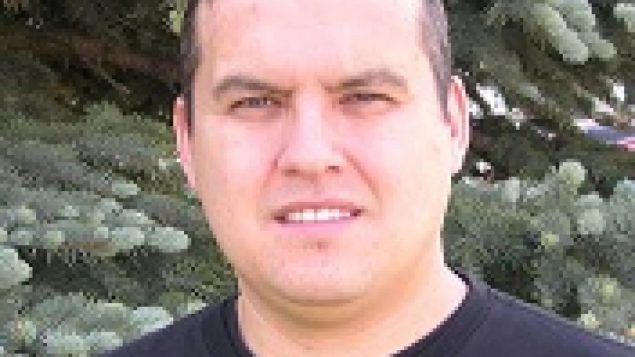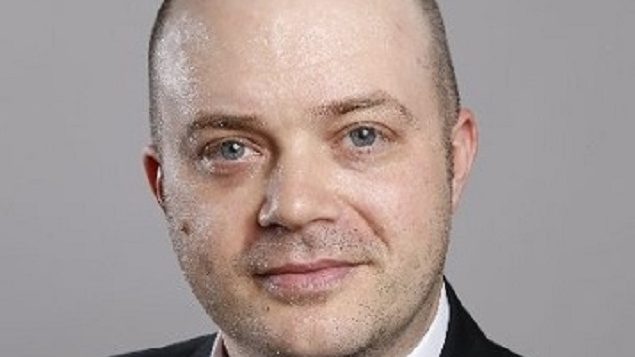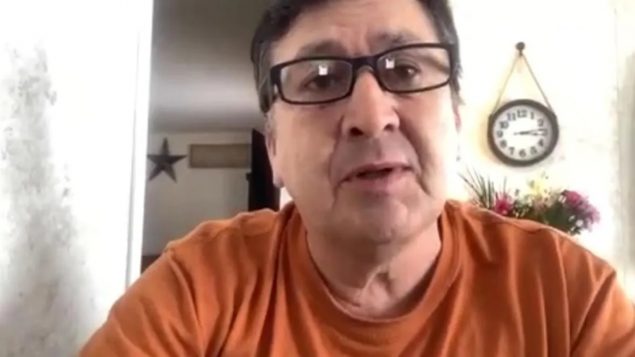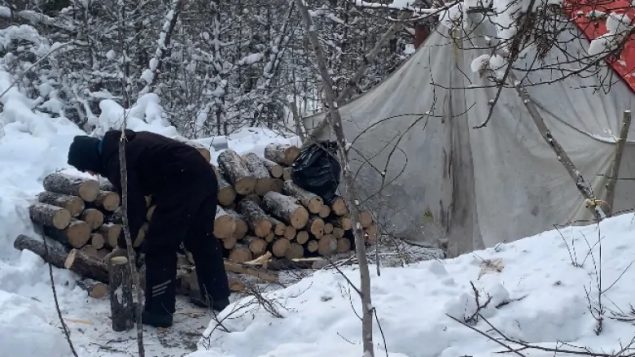A northern Saskatchewan First Nation erected a blockade earlier this month after surveyors from a Toronto-based uranium company were seen, twice, working on the First Nation’s land without consent from the First Nation.
The CBC’s Jason Warick reports that the dispute involves members of the Birch Narrows Dene Nation, located about 600 kilometres northeast of Saskatoon, and Toronto-based Baseload Energy Corporation.
It’s taking place on the edge of the Athabasca Basin, home to some of the world’s richest uranium deposits but also, according to Warick, to endangered woodland caribou, lynx and other wildlife.
The blockade is no longer up, but members of the First Nation, which has a population of just over 800 people, are patrolling the area after they blockaded a road and issued a cease-and-desist order against the company.

Birch Narrows First Nation Chief Jonathon Sylvestre. (submitted)
“It was very disrespectful, totally uncalled for,” Birch Narrows Chief Jonathon Sylvestre told Warick, referring to the workers’ presence
“This is not being done properly.”
Baseload says the company has all necessary provincial permits and the initial survey would have next to no environmental impact.
Stephen Stewart, the chair of Baselode’s board, told Warick the company started work because it has to be done when the ground is frozen, adding that meant no disrespect to the First Nation.
“I will note that we are permitted to do this work, but permit and the consent of the community are different things,” he said.

Stephen Stewart (twitter.com)
“In any project that is in the extractive business, you absolutely need to have these local communities as partners.
“Not to be cliché, but it is a win-win for everybody.”
Birch Narrows members want a detailed wildlife and habitat impact study conducted before things go any further.
Ron Desjardin, a Birch Nation trapper and elder who first noticed and confronted the surveyors, told Warick the endangered woodland caribou are his biggest concern.
“Also as a trap line area, we carry out extensive activity: trapping, hunting, fishing. We’ve done it for generations. It’s been passed down to us for a long, long time,” he said.
“We have people who have passed away on those trap lines, who have given up their lives on those trap lines in their struggle to feed their families.
“That area means a lot to us. It’s not just an ordinary piece of land. It has a lot of significance to us as a community.”

Ron Desjardin. (Jason Warick/CBC)
Baselode’s Stewart told Warick he and his officials will work closely with Birch Narrows and he is promising the project will not proceed unless the First Nation agrees.
“There can be no project without the buy-in from the communities,” he said.
In an email, provincial authorities told Warick that Birch Narrows was given ample time to voice any concerns and the current exploration phase involves no drilling or digging.
However, the province warned in a statement that “deliberately blocking Crown lands is illegal” and could be referred to the RCMP.
Desjardin, meanwhile, says Birch Narrows leaders are still willing to talk, but only if the government and Baselode treat the First Nation’s members with respect.
“We were caught off guard, and we don’t want that to happen again. We don’t want people just moving in without a proper consultation process,” Desjardin said.
“We need to be able to have a dialogue. Let’s sit down.”
With files from CBC News (Jason Warick)







For reasons beyond our control, and for an undetermined period of time, our comment section is now closed. However, our social networks remain open to your contributions.